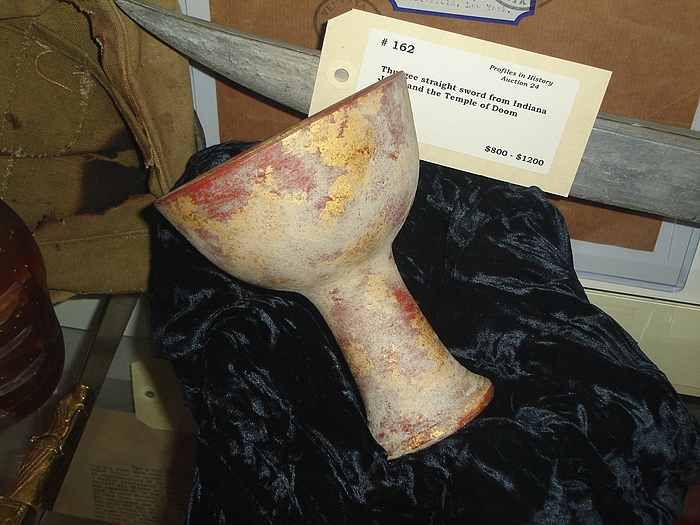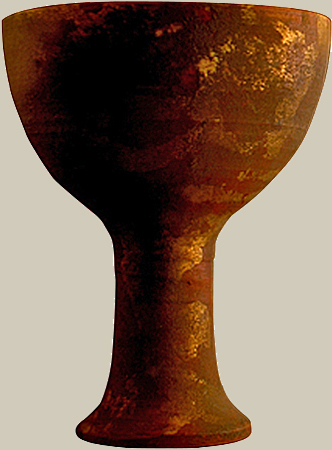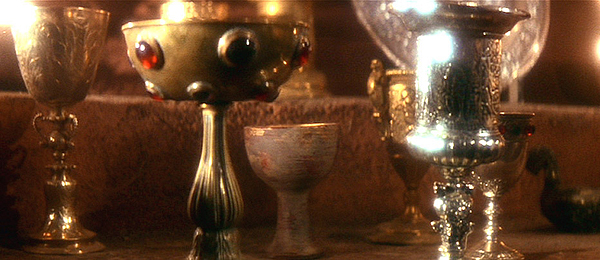
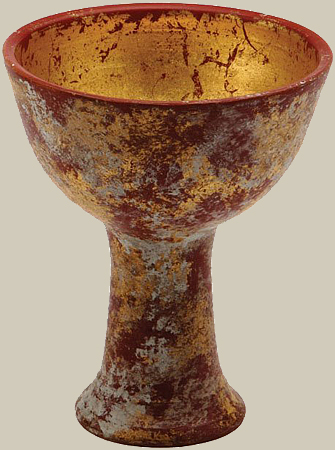
The Holy Grail has taken on many shapes and names over the last two thousand years of its history. Whether it was made by Christ or belonged to the host of the Last Supper, it was cherished through the centuries as Christianity’s’ most prized artifact. An entire literary genre flowered around the Holy Grail.
Lucasfilm’s depiction of the Holy Grail was realized not as a beautifully decorated chalice, but as a simple clay cup. Historically, the actual cup would be two-thousand-years-old. In keeping with this continuity, the grail prop shows heavy weathering, gold peeling from its surface. The interior of the cup, however, still maintains a more uniform gold surface.
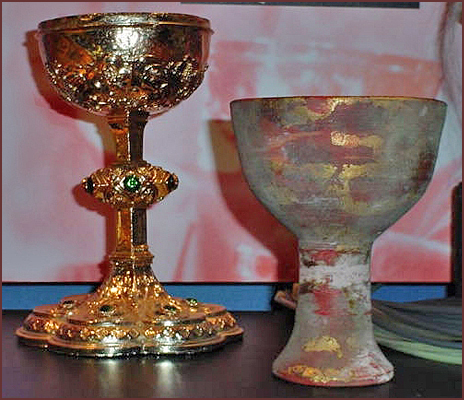
The Lucasfilms Archives states that the cup is clay, but many of the original props were made of plastic resin. When the cup is kicked by Elsa into the abyss, it lands on a small ledge. It’s doubtful that a two thousand year old clay cup would survive such treatment.
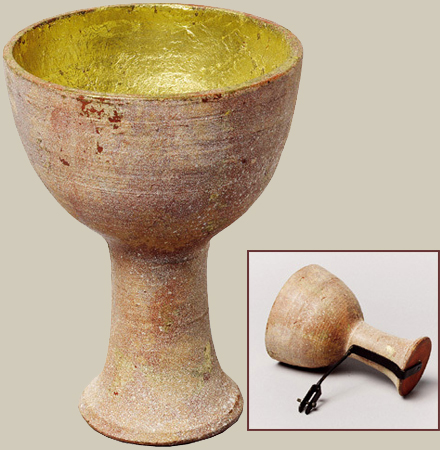
There are rumored to be twenty grail props made for the film. Eight of them were actually terracotta and beautifully decorated. The other twelve were, of course, resin and had simpler “paint jobs”. None of them were completely gold leafed on the interior of the cup, because the amount of detail that can be seen on film is rather low.
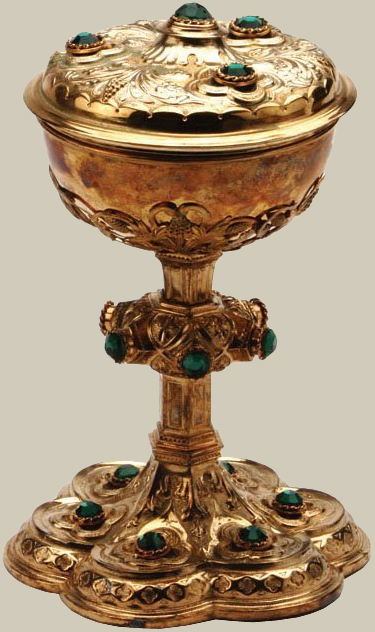
Because the ceramic Grails were thrown by hand, there is some variation in the shape, especially of the bowl. The resin props seem much more uniform in shape.
